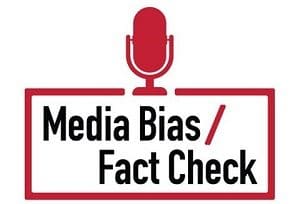LEAST BIASED
These sources have minimal bias and use very few loaded words (wording that attempts to influence an audience by appealing to emotion or stereotypes). The reporting is factual and usually sourced. These are the most credible media sources. See all Least Biased sources.
- Overall, we rate AFP as Least Biased based on balanced story selection and High for factual reporting due to proper sourcing.
Detailed Report
Bias Rating: LEAST BIASED
Factual Reporting: HIGH
Country: France
MBFC’s Country Freedom Rating: MOSTLY FREE
Media Type: News Agency
Traffic/Popularity: High Traffic
MBFC Credibility Rating: HIGH CREDIBILITY
History
Founded in 1835, Agence France-Presse (AFP) is an international French news agency headquartered in Paris, France. French writer and translator Charles-Louis Havas founded Agence France-Presse (AFP) as Agency Havas. In the early days, Charles-Louis Havas translated articles from foreign papers, selling the translations to bankers, traders, and politicians using carrier pigeons to dispatch news. Agence Havas was the first to start using the Morse Telegraph, which enabled them to transmit news quickly and became a primary means of distribution throughout France and Europe. Subsequently, Charles-Louis Havas transformed his company into a multinational advertising and public relations company.
Two of his employees, Paul Julius Reuter and Bernard Wolff, later founded their own news agencies, Reuters in London and Wolff in Germany. Following the liberation of Paris in 1944, Journalists of the French Resistance established AFP (Agence France-Presse) as a wire service. The French government gave AFP the assets of Agence Havas, including the Paris building that became its headquarters.
As of April 2018, The Chairman & Chief Executive Officer is Fabrice Fries. Agence France-Presse’s Global Editor in Chief is Philip Chetwynd.
Read our profile on France’s Media and Government.
Funded by / Ownership
In 1981, the New Internationalist published an article called “The Big Four” (referring to the ‘big four’ news agencies United Press International, Associated Press, Reuters, and Agence France Presse) in which they described Agence France Presse as “AFP is the only one which depends on subsidy from the government of its company – usually through official subscriptions by government offices. As a result, it is often regarded as the voice of the French government.”
Currently, Agence France-Presse (AFP) is still supported financially by the French state and gets up to 40 percent of its funding from the French government but maintains its editorial independence by parliament. In April 2018, AFP’s chairman and CEO Emmanuel Hoog stepped down after failing to secure government support. The French state only controls three of the 18 seats on AFP’s board; however, a CEO can’t operate without its confidence since the French government, through its various agencies, is AFP’s principal source of revenue.
Analysis / Bias
In review, AFP delivers news in video, text, photographs, multimedia, graphics, and video graphics. Agence France Presse (AFP) utilizes neutral headlines such as “Poland’s Supreme Court top judge defies retirement law” and “Waves of strikes pound south Syria after talks fail.” All information contained in news articles is sourced through quotations, links, and the use of field journalists covering stories. A factual search reveals that AFP has not failed any fact checks. In fact, AFP is considered a credible fact-checker in itself.
According to a Slate article, AFP first distributed and then tried to retract an unflattering photo of French President Francois Hollande, but this caused criticism as Slate states, “AFP had bowed to political pressure, thus causing some people to call into question the agency’s credibility.” Further, some organizations, such as the Committee for Accuracy in Middle East Reporting in America (CAMERA), claim that AFP has an anti-Israel bias. However, The Committee for Accuracy in Middle East Reporting in America (CAMERA) is a powerful Boston-based lobby group that tries to curb criticism of Israel in U.S. media. In other words, CAMERA has a strong pro-Israel bias.
Although we did not find substantial evidence of State bias in our review, it must be considered that 40% of their funding comes from the French government, which may influence reporting.
Failed Fact Checks
- None in the Last 5 years. They are an IFCN fact-checker.
Overall, we rate AFP as Least Biased based on balanced story selection and High for factual reporting due to proper sourcing. (7/25/2016) Updated (M. Huitsing 10/06/2023)
Source: https://www.afp.com/en/home
Last Updated on October 6, 2023 by Media Bias Fact Check
Do you appreciate our work? Please consider one of the following ways to sustain us.
or
Left vs. Right Bias: How we rate the bias of media sources


